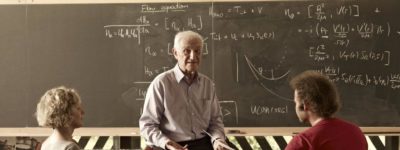Emergence of Mass in the Standard Model

The Lagrangian that defines quantum chromodynamics (QCD), the strong interaction piece of the Standard Model, appears very simple. Nevertheless, it is responsible for a remarkable array of high-level phenomena with enormous apparent complexity, e.g., the existence, number and structure of atomic nuclei.
The source of all these things can be traced to emergent mass, which might itself be QCD’s self-stabilising mechanism. A background to this perspective is provided, presenting, inter alia, a discussion of the gluon mass and QCD’s process-independent effective charge and highlighting an array of observable expressions of emergent mass in hadron structure measures.
The seminar will be recorded.
People
-
Prof. Craig D. Roberts - SpeakerInternational Distinguished Professor - School of Physics & Head - Institute for Nonperturbative Physics, Nanjing University, ChinaCraig D. Roberts is the International Distinguished Professor and Head of the Institute for Nonperturbative Physics at Nanjing University (NJU), which is listed in the top-10 on the Nature Index of the World’s Leading Universities. For the thirty years before that, he was a scientist in the Physics Division at Argonne National Laboratory, serving as Group-Leader/Theory from 2001-2017, with the Physics Division Theory Group achieving recognition as the top DOE Office of Nuclear Physics funded Group in the USA under his leadership. Academically, he conducts and oversees a wide-ranging research programme, pursuing development and refinement of novel theoretical approaches to strong-coupling quantum field theory, with impacts stretching from contemporary hadron physics into high-energy physics and cosmology. He has published 237 articles, a body of work that has received more than 24,000 citations; additionally, he has delivered 177 invited presentations at international conferences and workshops, and 402 colloquia, seminars, etc., worldwide. Amongst numerous awards, we can list the Friedrich Wilhelm Bessel Research Prize from the Alexander von Humboldt Foundation; the Helmholtz International Fellow Award; and the University of Chicago – Argonne LLC Board of Governors Laboratory Distinguished Performance Award. More recently he became the first international scholar at NJU to win a Key Grant from the National Natural Science Foundation of China, which brings a spending-power equivalent of roughly $3,000,000 over five years.
Privacy Notice
Pursuant to art. 13 of EU Regulation No. 2016/679 – General Data Protection Regulation and as detailed in the Privacy Policy for FBK-ECT* event’s participants, we inform you that the event will be recorded and disclosed on the FBK-ECT* institutional channels. In order not to be filmed or recorded, you can disable the webcam and/or mute the microphone during virtual events or inform the FBK-ECT* staff who organize the public event beforehand.